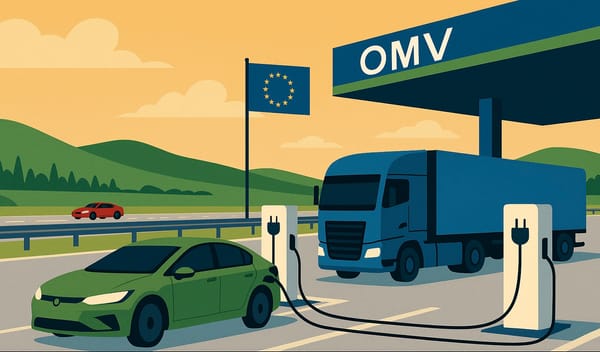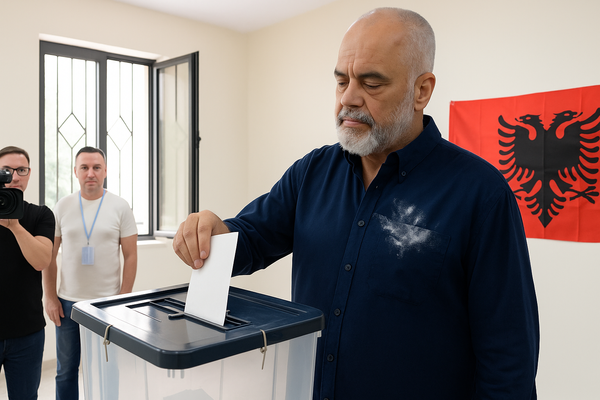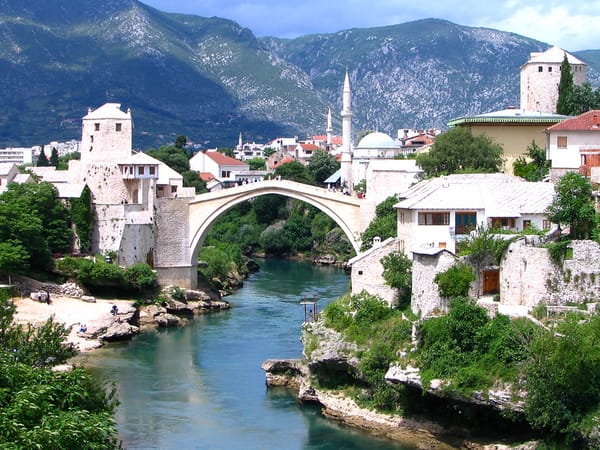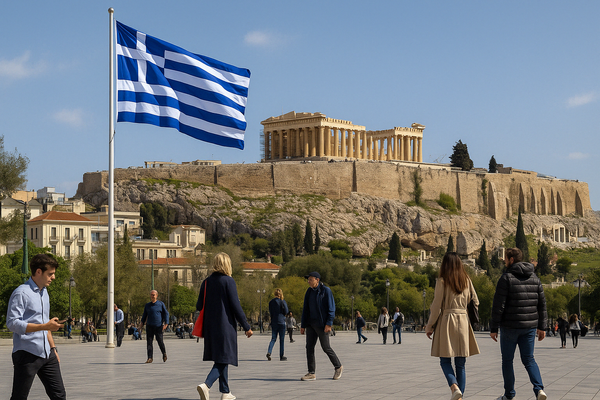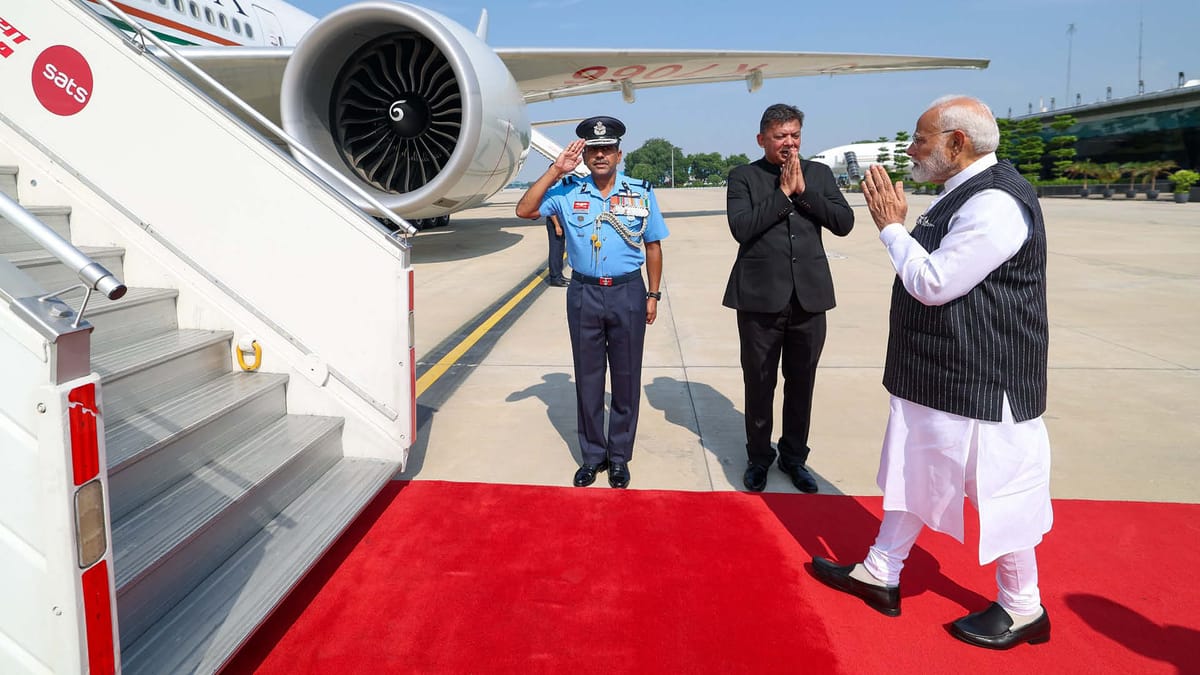
Modi pays CEE ‘historic’ visit
Indian Prime Minister Narendra Modi discussed collaborations on AI and startups with Poland during his recent tour of Central and Eastern Europe (CEE).
Modi’s visits to Poland and Ukraine, occurring just weeks after a contentious meeting with Russian President Vladimir Putin in Moscow, highlight India’s attempt to maintain its historical ties with Russia while strengthening business and diplomatic relations with the West.
As India deepens its engagement with CEE, Modi’s visit reflects a broader recognition of the region’s growing strategic importance, as countries including Poland and Austria play a more significant role in future geopolitical developments.
Modi’s stop in Poland also signals India’s recognition of the growing importance of CEE in global geopolitics, looking beyond the traditional European powerhouses the UK, Germany, France and Italy. Poland, a key NATO member and an increasingly influential player in the EU, has become a significant partner for India.
Discussions with Polish President Andrzej Duda and Polish Prime Minister Donald Tusk centered on enhancing cooperation in fields including defence, trade, and regional security.
During a joint press conference in Warsaw with Modi, Tusk said, “We began with a clarification on very emotional issues. Prime Minister Modi confirmed his willingness that he is ready for peaceful, rightful and immediate end to war. We believe that India can play an essential and very constructive role. So, this announcement is very important for us. Prime minister, in ten hours you will visit Ukraine. We believe that your visit to Ukraine will be historic.”
India looks beyond traditional Western Europe allies
President of Indo-Polish Chamber of Commerce in Poland, JJ Singh said: “It’s a very important historic visit. This will help not only in the political relations between India and Poland but also on the business side, because whenever a head of the state of this stature, as Prime Minister Modi visits, will help the business community not only in Poland but in India as well… Poland and India have a long history of working together already in mining, food processing, food and agriculture, and pharma.
“I think the new industries, what Prime Minister Modi also addressed generally in the AI, gaming industry as such. So these are the sectors which are booming in both the countries. In India, we have a start-up India programme and there are a lot of startups in Poland, tapping those also can be like building future business prospects for both sides,” Singh added.
Indian rope trick
Modi’s visit to Kyiv, the first by an Indian prime minister, comes as Ukraine continues its resistance against Russia’s full-scale land invasion which it launched in February 2022, and is aimed at reasserting India’s strategic autonomy. While Modi’s visit to Moscow in July drew sharp criticism from Kyiv and some Western capitals, his stop in Ukraine is not merely an attempt to placate Ukrainian President Volodymyr Zelensky and his allies. Instead, it is a demonstration of India’s ability to maintain a balanced foreign policy, engaging with both sides of the conflict to advance its national interests.
India has consistently advocated for diplomacy and dialogue to resolve the war, refraining from condemning Russia outright. This stance, while frustrating for Western nations, aligns with India’s long-standing non-alignment policy. However, Modi’s visit to Kyiv sends a clear message that India remains committed to engaging with all parties in the conflict, a move that the West is likely to view positively as it reflects Delhi’s willingness to engage with global concerns.
Modi navigates fractious geopolitical scene
India’s relationship with The Kremlin is deeply rooted in decades of defence cooperation, with Russia still supplying over half of India’s military equipment. Additionally, India has ramped up its purchase of discounted Russian oil, a move that has mitigated the impact of Western sanctions on Moscow. Despite this, India is also keen to grow its relations with the West, particularly the US, as it navigates an increasing multipolar world.
Modi’s visit to Kyiv, therefore, is not about abandoning Russia but rather about maintaining a nuanced stance that keeps India engaged with both Moscow and Kyiv. This approach also helps Delhi manage its relations with China, Russia’s increasingly close ally, while ensuring that it remains a key player in the global geopolitical arena.
Implications for CEE
Modi’s tour of CEE is a strategic move that highlights India’s nuanced approach to global geopolitics. By balancing its relations with Russia and Ukraine, while deepening ties with key CEE nations, India is asserting its role as a significant global player, capable of engaging with all sides in a shifting landscape.
Foreign policy analysts note that CEE countries now have greater agency in shaping their own futures, and Modi’s visit acknowledges this shift. Strengthening bilateral political, economic, and security ties with these countries is not only beneficial for India’s strategic interests but also for the region as it navigates the complexities of the ongoing conflict in Ukraine and its implications for European security.

